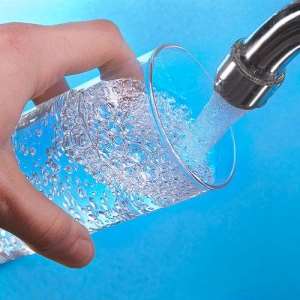
The Chartered Institute of Plumbing and Heating Engineers, Ghana (CIPHE-Ghana) will be more than happy to help out with the water situation in the country to see to it that, no one is left behind.
Water is life; but when contaminated it can take a life. Water makes up 70% of the earth but it turns out to be one of the scarcest commodities in the world that governments and notable organizations are still struggling to make a considerable amount potable and accessible to humanity.
We can only make a reality of this year’s World Water Day theme, “leaving no one behind” if we take a holistic look at the situation and work together with all players in the water industry and those whose work affects water quality.
We shouldn’t discount the fact that lack of water; especially, potable water affects all aspects of life. For instance, with a child’s education, water plays a major role. Children in the rural communities which are challenged with access to water have their education interrupted and mostly delayed.
The time and energy they spend in search for water take most of their day whiles, their peers will be having more time in taking lessons. It takes a toll on workers too when the day begins with the struggle for water or after a hard days job, they go searching for water instead of relaxing to get refreshed for the next day’s job.
In most countries, governments focus their efforts in supplying potable water to the urban areas and leave the rural areas at the mercy of donors, volunteers, entrepreneurs, religious groups and many others who come in the name of NGOs. That strategy of addressing the water situation should be reconsidered and given a better face.
A typical village will have a river or a well at one side and the latrine on the other side of the village that is loosely kept. This badly affects their water and for that matter, the lives of those in the village. They should also not be left behind.
As a professional plumber, I will like to draw your attention to some areas that can help us not to leave anyone behind and get you informed of some cautions around them:
Rainwater harvesting – This source of water supply will be more effective when it is policy driven. When rain is harvested well, it needs only a little treatment. Mostly, the only filtration can make it safe for use. Many estate developers do have rain gutters fixed to the roofs of their buildings and connected with downpipes but, are for rain disposal and not to harvest it.
These homes will be the same to use the water supply from the local water authority to wash their cars and water their lawns. This alone tells you how wasteful we have been over the years. Rainwater harvesting will minimize the floods that easily displace people and the many shortage of water many communities experience.
In making sure that solving one problem wouldn’t result to another; roofing sheets should be standardized and regulated so that the water harvested will be suitable for culinary works after passing it through a simple filtration system. Secondly, the reservoir to hold the harvested rain should go through an organized inspection that wouldn’t lead to any unpleasant situations like the outbreak of water-borne diseases or collapse of the tank that might lead to any form of disaster.
Drilling of boreholes – is also a very effective way of getting ware but, it will be best to have a mechanized one for the community. In that, many people in the urban area that think; they can afford do consider only their land space. They also take the responsibility of their sewerage. This tells that, as you have your borehole on your piece of land, right behind your fence wall is your neighbor’s septic tank.
With the plumbing profession, the best practice in positioning a well and a septic tank is to have a minimum interval of eighteen meters (18m). This normally doesn’t happen here in Ghana because those who can afford are minding their own business.
As we mark World Water Day 2019, CIPHE-Ghana opens the opportunity to community leaders who are interested in starting discussions that will lead to solving their water problems. We are here to help and make sure, no one is left behind.
Joshua K. Nyamavor
President, CIPHE-Ghana




 Akufo-Addo commissions Phase II of Kaleo solar power plant
Akufo-Addo commissions Phase II of Kaleo solar power plant
 NDC panics over Bawumia’s visit to Pope Francis
NDC panics over Bawumia’s visit to Pope Francis
 EC blasts Mahama over “false” claims on recruitment of Returning Officers
EC blasts Mahama over “false” claims on recruitment of Returning Officers
 Lands Minister gives ultimatum to Future Global Resources to revamp Prestea/Bogo...
Lands Minister gives ultimatum to Future Global Resources to revamp Prestea/Bogo...
 Wa Naa appeals to Akufo-Addo to audit state lands in Wa
Wa Naa appeals to Akufo-Addo to audit state lands in Wa
 Prof Opoku-Agyemang misunderstood Bawumia’s ‘driver mate’ analogy – Miracles Abo...
Prof Opoku-Agyemang misunderstood Bawumia’s ‘driver mate’ analogy – Miracles Abo...
 EU confident Ghana will not sign Anti-LGBTQI Bill
EU confident Ghana will not sign Anti-LGBTQI Bill
 Suspend implementation of Planting for Food and Jobs for 2024 - Stakeholders
Suspend implementation of Planting for Food and Jobs for 2024 - Stakeholders
 Tema West Municipal Assembly gets Ghana's First Female Aircraft Marshaller as ne...
Tema West Municipal Assembly gets Ghana's First Female Aircraft Marshaller as ne...
 Dumsor is affecting us double, release timetable – Disability Federation to ECG
Dumsor is affecting us double, release timetable – Disability Federation to ECG
